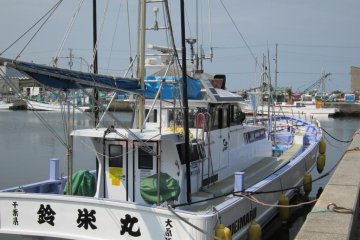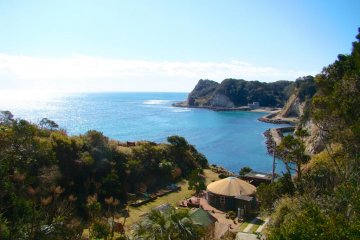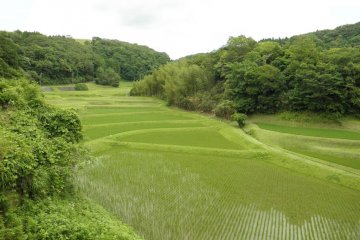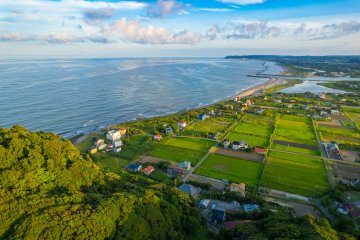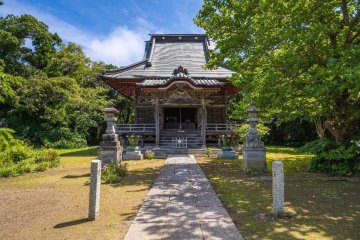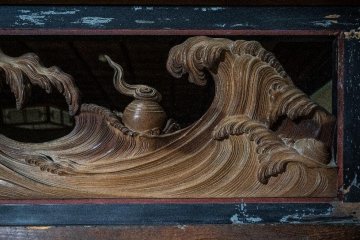Even if you have never visited Japan and know little about the nation’s culture and history, it is very likely that you have encountered one of its most iconic works of art— “The Great Wave” by Hokusai. This woodblock print is considered to be Japan’s most famous artwork and has found its way into modern popular culture worldwide, with versions being used on everything from album covers to t-shirts and even an emoji on certain devices.
Although many people know about “The Great Wave,” few know that the work is thought to have been inspired by a lesser-known artist by the name of Nami no Ihachi (simply Ihachi for short). Ihachi was a contemporary of Hokusai, though he was about 20 years older than Hokusai and so began his career earlier. Ihachi is also considered the father of the ukiyo-e art style that Hokusai used. Most notably, however, Ihachi’s artwork focused on the waves of the beautiful Sotobo Coast where he resided. Since Hokusai is known to have visited the area (maybe even having met Ihachi) and because of striking similarities between certain works of Ihachi and “The Great Wave,” it seems likely that Ihachi provided inspiration for Hokusai’s most famous work. Although Hokusai’s print is officially known as “The Great Wave Off Kanagawa,” it is quite possible that it was originally inspired by waves off the coast of Chiba Prefecture!
Much of Ihachi’s original work can still be enjoyed today at Izunadera Temple and Gyoganji Temple in Isumi. Seeing these works is an experience in itself. The details of Ihachi’s work are incredible and it’s impressive how well the work has fared after hundreds of years. However, while the artwork is worth seeing, you will also want to explore the beautiful scenery which inspired Ihachi and Hokusai along Sotobo Coast in Isumi City.

The coastal views over the Pacific Ocean from Isumi are among the best you can find in Japan. Locations like the Taitosaki Lighthouse or nearby Tsutsugaura (also known as Meotoiwa and Suzumejima) are perfect spots to see the crashing waves from above or sea level. In fact, the region is so well known for its waves that the 2020/2021 Tokyo Olympics held the surfing competition in the area along Tsurigasaki Beach. The Olympians surfed the very waves that inspired artists like Ihachi and Hokusai!

After spending time at the cliffs or the beach, you may find yourself hungry for seafood and Isumi City has you covered! There are a number of restaurants serving up delicious local seafood, but one of the best in the area is the Aki Seafood Restaurant. Located just around the corner from Isumi’s top coastal hotspots, Aki serves up local seafood like shrimp and fresh sashimi, as well as one of its most popular dishes—Ise-ebi, a type of lobster loved by locals. Aki’s most popular meal is the tempura lobster set, which comes with a huge rice bowl generously topped with tempura veggies and lobster, as well as a lobster miso soup—another original dish you won’t find at most restaurants in Japan.

Once you’re done with lunch, there’s still plenty to explore inland! The countryside of the Isumi region is just as beautiful as its coast, filled with hills, trees, and rice farms. One of the best ways to see the countryside is to take a ride on the Isumi Line. This simple one-car train travels through Isumi and even extends into Chiba’s countryside. It’s a great experience if you enjoy train rides, but make sure to be on time! With the low population of the region, these trains only run once every hour. If you’re not interested in the ride, there are still plenty of great spots to enjoy the trains passing by with the beautiful scenery of Isumi as a backdrop.

One of the best things about this region is that it is easily accessible to foreign travelers, being only a short journey from Narita Airport. If you rent a car (which is probably the ideal way to travel around the area), you can arrive in Isumi in a little over an hour from the airport. Even from the middle of Tokyo, you can make it to Isumi in about two hours.

Most travelers to the Kanto region will spend all of their time exploring Tokyo and this is understandable. There’s much to see! But don’t miss the beauty and history of the Isumi region just next door. There’s a reason the landscape of Isumi inspired great artists like Ihachi and Hokusai. It is genuinely beautiful and you won’t regret the time you invest in exploring this unique region of Japan.
You can discover more of Isumi and the culture of the area with a variety of tour options.



